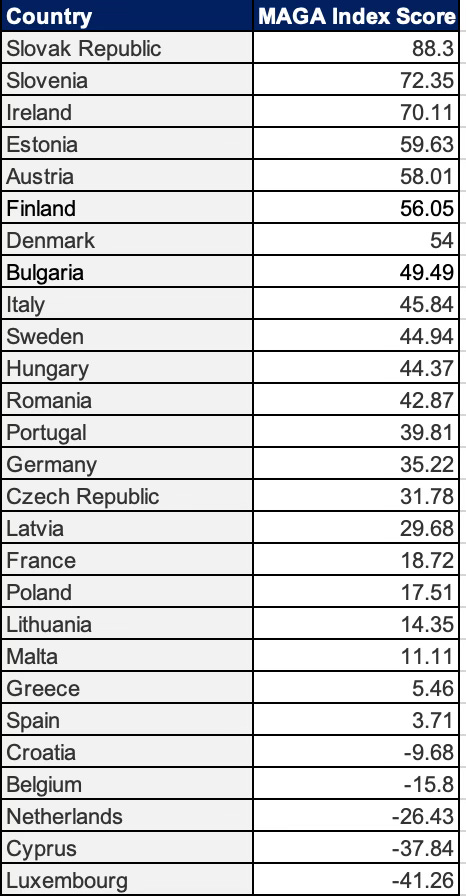Digging Up Greenland
Why extracting critical minerals is hard, can Trump tariff Denmark, and other things
Greenland is in the news.
This is great for me (if less so for Greenland, in this instance) because, as I am fond of mentioning, unlike most people in the world, I have actually been to Greenland [see the photo above].
From a Trump perspective, the incoming President’s obsession with Greenland makes some sense from an economic security/supply chain diversification perspective.
Greenland does indeed have a lot of critical minerals:

But I do wonder if people have given much thought as to what extracting these minerals requires.
To give two anecdotal examples from my experience there:
In 2013, I was asked to conduct advocacy-focused research for a small UK charity on Greenland’s mining policy, specifically in relation to rubies. Greenland has a small collection of artisanal miners who had fallen out with the government after it granted a concession to a Canadian mining company and, at the same time, restricted access to one of the really good ruby deposits. This led to a lot of beef, protests, arrests, locals being chased off the concession by armed police, etc.
A big source of the problem is that Greenland doesn’t [or at least didn’t; this might have changed in subsequent years] normally recognise private land rights. After all of this drama, the commercial mine folded in 2023.
Anyhow, for the purpose of this newsletter, the main point is that there was beef with the locals. [If you’re interested in the full story, I’ve managed to dig out my report here.]
At the same time, the main topic of local conversation was a much bigger iron ore mining concession.
In 2013, a company called London Mining (now gone bust) was granted a 30-year exploitation license to dig up iron from the Isua Iron Ore mine on the edge of Greenland’s ice cap.
This mine was massively unpopular with the people I spoke to. The reasons given:
For the mine to operate, the company would need to hire thousands of foreign labourers. Given Greenland's population of around 57,000, this would be a significant cdemographic change.
London Mining planned to transport the ore from the mine to a port using a pipeline, which would traverse fjords and other pristine areas. While the company said there would be no leaks, there are never no leaks. The risk of environmental damage was high.
Anyhow, this never ended up happening.
My admittedly anecdotal conclusion is that if a company or country truly wants to exploit the natural resources of Greenland, they would probably need to
Ignore the wishes of lots of locals and indigenous people
Import thousands of foreign labourers
Be comfortable decimating areas of pristine natural beauty
Which … y’know … some people might have a problem with.
Tariffing Denmark
Staying on the subject of Greenland, Trump has threatened to tariff Denmark if it doesn’t give him Greenland.
I have seen some comments on the internet suggesting this is further evidence he is nuts because doesn’t he know that Denmark is part of the EU and the EU common commercial policy means trade is an EU competence and he can’t just single out Denmark?
My facetious response to this sort of argument is something like, “If Trump wants to apply tariffs to some member states and not others what exactly is it you think the EU can do to stop him?”
My more serious answer is that Trump has two options if he wants to apply tariffs to some member states and not others. He could …
Apply tariffs to the whole EU, but pick things that are predominantly exported from Denmark, such as pork sausages. This is indeed what the EU did when it, for example, applied tariffs to US playing cards in response to Trump’s steel and aluminium tariffs. The tariff was US-wide, but in reality mainly hit a playing card factory in Kentucky, then speaker of the house Mitch McConnell’s state.
Apply a load of tariffs and just target Danish-originating products. There’s quite a bit of precedent for the US targetting specific member states with tariffs, for example in the context of the Boeing-Airbus dispute when French, German and Spanish products were hit with tariffs, or the currently suspended tariffs on Austria, Italy and Spain in response to their digital services taxes.
Once you understand this, it does, of course, raise other questions. Doesn’t this mean that Trump could exempt some EU member states and not others from any future tariffs if they give him something he wants? Well, yes.
And while the EU as a collective entity falls foul of Trump’s intense hostility towards those countries/territories that persistently sell more to the US than they buy, at a member-state level, there is a fair bit of variation.
Digging out my MAGA index [reminder: above 0 means Trump hates you; below 0 means you’re not on his shit list, at least not for this], you can see that some member states are naughtier than others:
To put it another way, Luxembourg, Cyprus, the Netherlands, and Belgium have quite different stories to tell on persistent trade surplus/deficits than Slovakia, Slovenia, Ireland, Estonia and Austria.
Why does Trump love Tariffs?
One of the leading indicators that things aren’t quite right in the world is that journalists start calling me.
On that note, do listen to me, Duncan Weldon, David Henig and Meredith Crowley discuss Trump’s tariffs on BBC Radio 4’s The Briefing room HERE.
Trade jobs
The UK’s Trade Remedies Authority is looking for a new CEO. If you think you’ve got what it takes, you can apply HERE.
Best,
Sam





